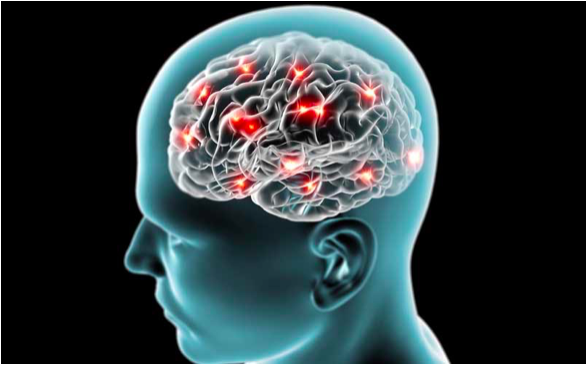Over the years, folks have always pointed out how powerful the human brain is. At some point, we hear stuff like we only use about 10% to 20% of our brain’s abilities (depending on who you talk to). Though this has not been categorically proven, it clearly shows our strong belief that our minds are capable of much more than what readily meets the eye.
Attempts have been made to reach these untapped parts of the brain through meditation, hypnosis, and training and now smart drugs. But have all or any of these really worked?
There is a general consensus as seen here that some ways of unlocking the power of the mind include having the right belief system, getting more knowledge, loving learning and being disciplined and focused in your learning. By constantly applying your brain, you form new neural pathways that increase your general intelligence. But guess what! Doing all of these require some effort.
The primary reason why we go to school is to apply our brains and increase the neural pathways, thereby becoming more intelligent. If this is all that is needed to increase our brain’s capacity, why then do students and professionals take smart pills?
Let’s take a close look at this interesting topic.
What Exactly Do these Smart Drugs Do?
These drugs are known as Nootropics and they are drugs that enhance brain functions. A lot of people think that somehow these so-called “smart” drugs actually make their users smarter. Actually, rather than make anyone smart, scientists are saying that what these drugs do is simply help their users function better.
Remember how we listed the things you need to do to get smarter and how we also noted that doing these things require some effort? Well, these drugs appear to give you that ability to focus and do the things you need to do. It can help a student focus better in their studies, it can help the professional focus and get tasks completed more efficiently etc.
This line of thought is supported by many professionals including University of Michigan Professor, Martin Sarter. Read more about it here: http://www.bbc.com/future/story/20140729-the-truth-about-smart-drugs.
Following this line of thought, we may therefore not exactly refer to them as smart drugs since they simply help you access what you already possess. If you are smart, it becomes more obvious and if you’re not, well… let’s just say they won’t suddenly make you become so.
Examples of Smart Drugs
There are a number of different drugs that fall under the category of drugs known as Nootropics. A few examples include:
Modafinil
It improves focus, improves memory, promotes motivation to carry out tasks and enhances thought clarity.
Amphetamine
This is said to improve focus.
Nicotine
It improves focus, motivation, and mood.
Caffeine
Caffeine is known to enhance activity by reducing the feeling of tiredness and increase wakefulness.
L-theanine
This is usually taken with caffeine for best results. It is said to have a calming effect on the body but does not cause drowsiness.
Noopept
This drug has been proven to improve memory formation and retrieval. It acts by promoting brain-cell growth through the increased production of the brain-derived neurotrophic factor compound.
There are other “smart” drugs widely in use and you can check a couple of them out in this article.
Do they have any Side Effects?
The first question that comes to the mind of any smart person when presented with these smart drugs is “are they safe?” “Do they have any side effects?”
These are important questions to ask. For most of the drugs listed above, their side effects will differ from person to person. For some, they may not even experience any side effects. There are however some of these drugs that are known to have some side effects.
Some of the possible side effects can range from mild to severe. These can include: headache, feelings of nervousness, nausea, anxiety, loss of appetite, trouble sleeping, dry mouth, diarrhea, runny nose, back pain, upset stomach, chest pain, serious rash, hives, swelling of the face, lips or tongue, trouble breathing or swallowing, rapid heartbeat etc.
Note again that this may not apply to everyone. You may need to see how each drug affects you.
Are they Addictive?
This is also another very important question. Some of these drugs are known to be addictive while others are still being studied. Drugs like Amphetamine are known to be addictive and can also cause stress and anxiety.
There are a number of natural products like L-theanine found in some types of tea which are safe and non-addictive in the real sense of the word. However, it is possible that you can become dependent on these drugs. This usually occurs in cases of abuse.
It is because of the possibility of abuse that some of these drugs are controlled drugs in some countries like the United States. This simply means you will need a doctor’s prescription to purchase them.
While discussing the subject of Nootropics, Dave Asprey noted that modafinil improves the release of dopamine but does not bind to your dopamine receptors the way addictive drugs like amphetamines and cocaine do. As a result of this, modafinil delivers increased brain function, focus, wakefulness, and efficiency without any addiction or withdrawal issues.
Given the above verdict, the nootropic modafinil appears to be a drug worth some close attention.
Where Can I Get It?
Modalfinil, as we noted above, is a prescription drug in a number of countries. There are however many places both online and physically where you can get them without a prescription. Find out what the law in your country says about it so you can know if it can be purchased without a prescription. You can also search online and you are sure to find a place to order your batch.
Conclusion
Have these drugs been shown to help people perform better? The obvious answer is yes. While some researchers say they cannot authoritatively comment on any long-term effects of using these drugs, it is clear that the use of these smart drugs in education, finance, tech and other industries requiring high mental activity will continue to increase, as more and more people continue to testify to the positive effects they are experiencing with the drugs.





